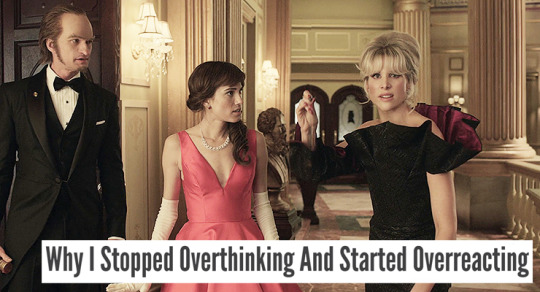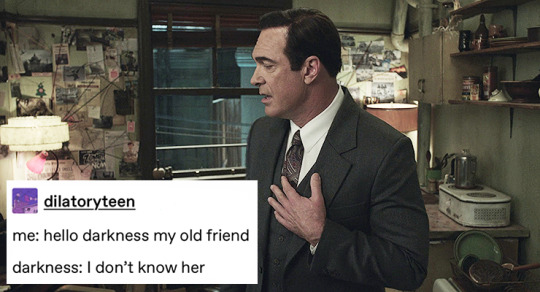she/her, 🏳️🌈🇮🇱✡️��️ please talk to me about my hyperfixations mainly just reblogging things about my current obsessions
Last active 4 hours ago
Don't wanna be here? Send us removal request.
Text


reminder that this is shauna months apart
1K notes
·
View notes
Text
Drunk Travis getting the tea on Jackieshauna.

I felt like I should’ve waited for the perfect time to bring this out, and at long last that time has come.
1K notes
·
View notes
Text
What if we just decided that the Wednesday of Pesach was Frog Day
Because of the frog plague + It's Wednesday My Dudes memes
ETA: i wanna see a meme with a bunch of frogs rushing at Pharaoh shouting it's Wednesday
10K notes
·
View notes
Text
lottie: alright callie you can ask me anything you want ☺️(<- really wants to talk about her weird cannibal cult)
callie: does my mom love me :(
lottie: oh. 😐
2K notes
·
View notes
Text
i don't care if it's nazis, mormons, or a bunch of misguided autistic people. if anyone ever tries to tell you your soul is from another planet and you're actually part of the class of impressive people that secretly did everything cool in the world but is now extinct and lives on through your broken genome, you RUN. YOU WILL RUN AWAY. YOU WILL SPRINT FULL SPEED AWAY FROM THAT.
70K notes
·
View notes
Text
Begging Starkid to give Curt Mega a role where he is just so down bad for someone and it actually ends well for them, PLEASE!
Give Curt "Loverboy" Mega his chance to shine!
272 notes
·
View notes
Text






The LORDS IN BLACK!!
210 notes
·
View notes
Text







asoue + tumblr
367 notes
·
View notes
Text







asoue + reductress
512 notes
·
View notes
Text







asoue + tumblr
356 notes
·
View notes
Text







asoue + reductress
265 notes
·
View notes
Text







asoue + tumblr
1K notes
·
View notes
Text
I knew Mari wasn't going to make it bc if she had lived my girl would NOT have respected their pact. she would have written books, would go on talk shows calling Shauna shanibal lecter, she would have been a Tonya harding type of celebrity and I love that for her.
2K notes
·
View notes
Text

the way I can hear this in his voice,,, free Tadius
1K notes
·
View notes
Text
rip to this canonically absolute fucking dumbass (picks fights with the deranged butcher, gets dumped for the guy's cousin, is too sexy for this cave, falls into a pit TWICE)

3K notes
·
View notes

